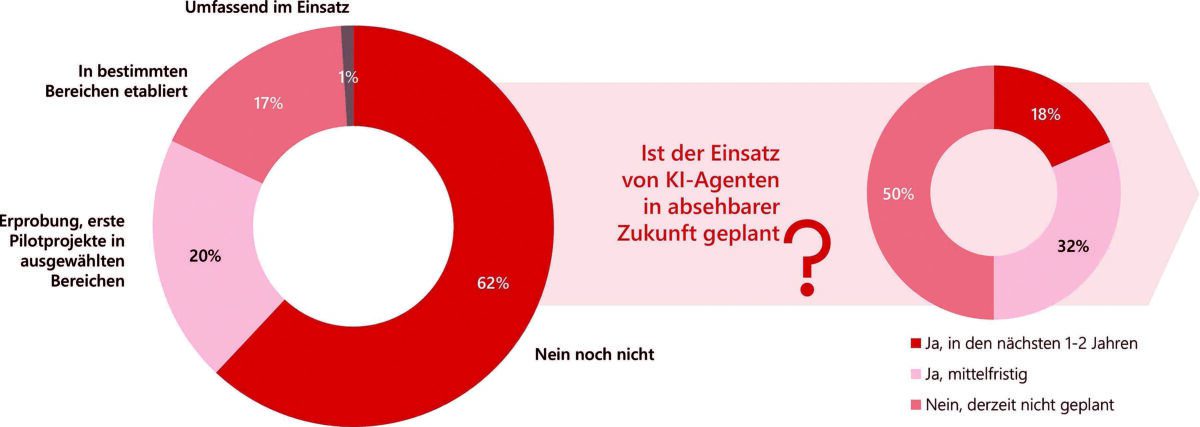Agentic AI in the Starting Blocks


When introducing artificial intelligence, there is a clear tension between high expectations and actual implementation. Many companies have not yet been able to successfully integrate their proofs-of-concept (PoC) AI solutions into their business processes. The reasons for this lie primarily in change management and data quality, rather than in the technology. At the same time, the next technological wave is already on the horizon with agentic AI: 73 percent of decision-makers expect autonomous AI agents to become increasingly relevant by 2028.
Currently, 38 percent are experimenting with initial applications. These are selected results from the new Lünendonk study „AI Transformation - From the experimental phase to productive scaling“. Proofs of concept have established themselves as a popular tool for testing AI use cases. However, only 30 percent of companies currently manage to transfer more than 25 percent of the AI prototypes developed into operational use.
Scaling as an AI challenge
Cross-departmental collaboration, clear responsibilities and a defined business benefit are crucial to success. Six out of ten companies emphasize that realistic expectations regarding the performance of AI are crucial. As the level of maturity increases, companies focus more on organizational framework conditions than on technology alone: 86 percent of advanced users integrate IT and specialist departments into pilot projects at an early stage. Agentic AI in particular is increasingly coming into focus as the key to the next level of automation. Autonomous AI agents can plan, make and execute complex tasks independently without the need for permanent user supervision. Currently, 20 percent of the organizations surveyed are in the test phase, while a further 18 percent are already using agentic AI in a targeted manner.

Not yet a standard: only four out of ten companies use AI agents and autonomous AI
Productivity boost Agentic AI
Decision-makers see great potential in back-office functions, cyber security and customer service. However, there are challenges in terms of system integration, data availability and the traceability of decisions. For the time being, Agentic AI therefore remains a promise for the future that requires clear governance structures and standardized interfaces.







1 comment
Football predictions
Haha, die Agentic AI klingt nach der nächsten große Wunderlösung, die dann doch wieder am Change Management scheitert. 73% rechnen bis 2028 damit, dass diese autonomen KI-Agenten relevant werden? Wahrscheinlich arbeiten die 70% anderen dann einfach weiter mit Excel, während die 3% mit Agentic AI den nächsten Big Data-Guru aufbauen. Ist ja klar, Backoffice-Funktionen automatisieren, das ist ja das Kürzel für nichts tun. Nur gut, dass man dann auch gleich klare Governance-Strukturen braucht, damit man weiß, wofür man genau 30% seiner KI-Prototypen nie in Produktion bringt.